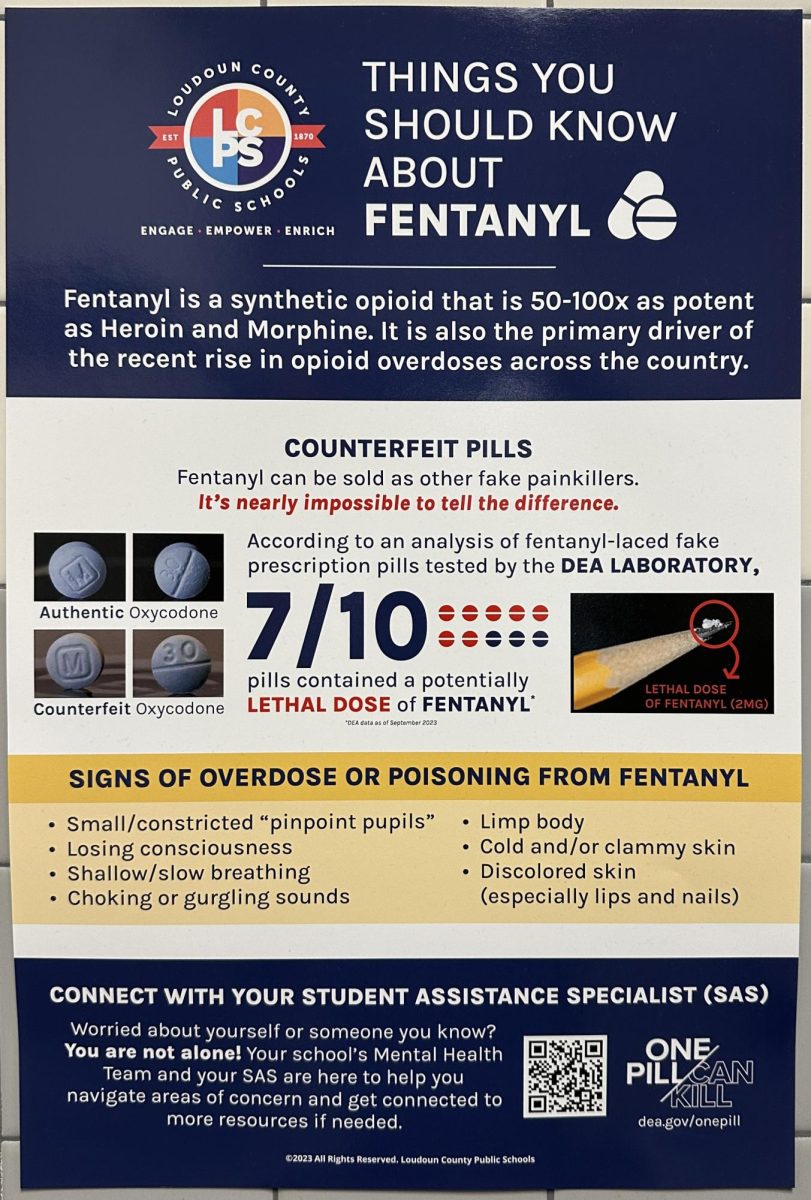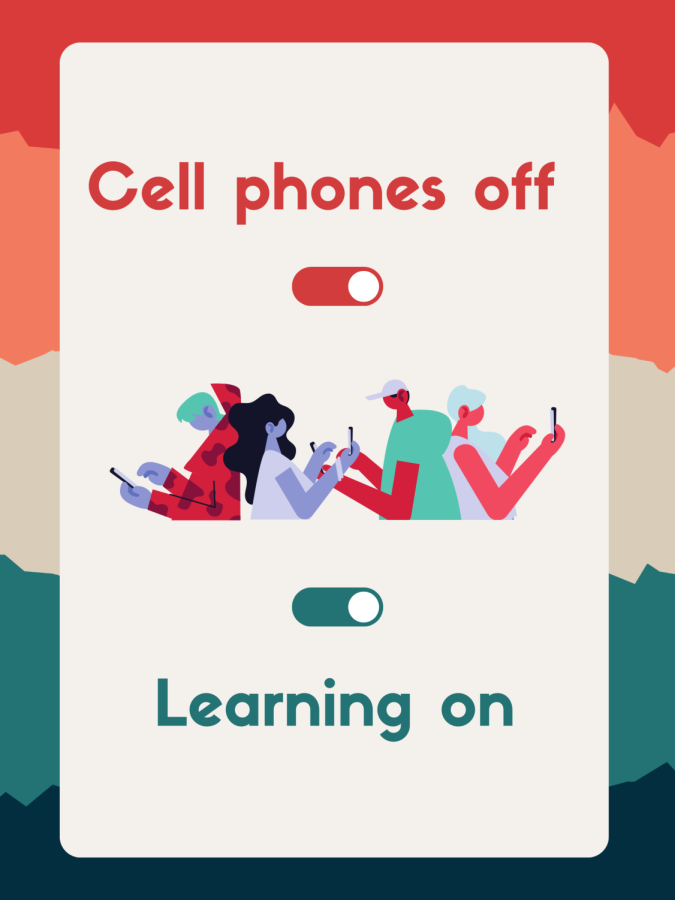Teenage overdoses caused by the powerful synthetic opioid, fentanyl, have been a widespread issue. Unfortunately, Loudoun County has fallen victim to some of these cases. Cases and conversations of opioid overdoses in Loudoun County sparked in 2023 when at least eight opioid-related overdoses occurred at Park View High School, located in Sterling, Virginia.
The first overdose of 2024 in Loudoun County happened on January 5 at Park View High School. Fortunately it was non-fatal thanks to the intervention of a sheriff’s deputy.
Ms. Amy Eways is a student assistant specialist at Independence High School whose primary role is to do prevention and intervention with students regarding substance abuse and mental health.
“No student goes into it wanting to use fentanyl,” said Eways. “A lot of the time what happens is it’s laced with those substances, whether it’s pills or anything like that. In Loudoun County 7/10 pills that are on the market are considered counterfeit so it’s really hard to tell if you have a pill that’s laced with fentanyl just by looking at it, and a lot of the times until you ingest it you’re not going to know if it’s in there because it’s odorless, tasteless, and colorless. When it’s manufactured it’s not always made by a chemist so you don’t know how much is being put into it so that’s where the danger is because it could be an illegal dose. If somebody ingests fentanyl and it gets to the point of an overdose, the biggest piece is that they’re going to stop breathing. It reduces their ability to take in oxygen, it’s going to impact their heart rate, their blood pressure, and if they become unresponsive, you have to administer Naloxone, a narcan, to help revive them.”
In the December faculty meeting, the staff watched a Naloxone training video so they’ve all been trained in administering narcan. The school has an emergency medical response team so if a student becomes unresponsive, they’re able to respond and assess the situation. If absolutely necessary, the school nurse, administrators and Ms. Eways are trained to handle the situation. Several teachers have also recently completed training and have Naloxone for use in classroom emergencies.
Every staff member has been trained on the different drug trends, what to look for when a student may be using, and how to act on the situation. Teachers have to pay attention to how their student is acting and how their behaviors have started to change. Some behaviors may include not completing their school work, missing/skipping class, seemingly down, excessively tired and sleeping a lot. Teachers are asked to look out for these symptoms and to let someone know if they suspect a student may be using drugs. It’s important to know that they’re not in the business of getting someone in trouble but instead to put some resources in place to handle the bigger issue.
As for students, it’s not always easy to “tell on” your friends but if you report something, you will remain anonymous and the administration will never share who they got the tip from. These types of activities often take place in the bathrooms so if you see unusual activity, let a staff member know so they can look into it. It’s a lot to take on, but if you’re concerned about your friend, encourage them to talk to someone. Also, you should also always be aware of your surroundings for not only yourself but for your friends. If you’re going to a party, do not take anything from anybody, watch your drinks, and remain cautious and safe.
At all times on the school campus, we have school counselors, a student psychologist, a social worker, and the student assistant specialist. The psychologist and student assistant specialist have the highest level of confidentiality which means that the only instance where they’ll have to call home is if you were a danger to yourself or others. In regards to drugs and alcohol, unless you’re doing a substance that can put you at an immediate risk, they won’t call home because their main concern is providing support for you while creating a safe space. If they have to call home, you will be informed beforehand and that’s something you’ll do together. The staff will meet with students individually and also groups of students whether it’s for your own use or for students who have a family member who is also struggling with drug abuse.
If you or someone you know is struggling with drug or substance abuse, there are many resources available for support. Remember, you are not alone and you deserve to get the help you need. The following resources are provided by the LCSO:
- You can call the LCSO non-emergency number at 703-777-1021.
- You can report an anonymous tip by calling 703-777-1919.
- You can email a tip to the Sheriff’s Office.
- You can report a tip through the Loudoun County Sheriff’s Office app.
- You can report a tip through the Safe2Talk app.
- You can report information on the LCSO website here.
Recognizing the urgency of this issue, the LCSO is sharing some of the resources available.
- Loudoun County Sheriff’s Office
- The LCSO provides educational resources on fentanyl and the risks associated with its use and conducts community and school forums
- Loudoun County Mental Health, Substance Abuse & Developmental Services
- REVIVE: Opioid overdose and naloxone education program. This training is free. For more information visit LINK or send an email.
- Prevention & Intervention: LINK
- Drug Enforcement Administration (DEA)
- One Pill Can Kill: LINK
- Substance Abuse and Mental Health Services Administration (SAMHSA)













